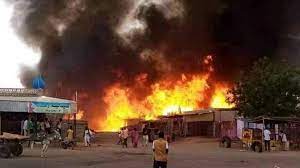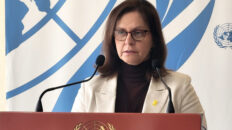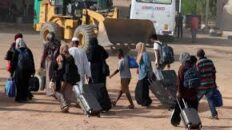16 January 2024
The year 2023 witnessed the eruption of wars and flaring up of deadly conflicts across the world. The conflict in Sudan (which plunged into a largescale war in April 2023) has received poor coverage by Western media, often viewed as less important than the wars in Gaza and Ukraine, which broke out in October 2023, and February 2022, respectively.
There is an ambivalence about Sudan in the West, for rarely did we see stories in the press last year on how the war in Sudan poses a number of challenges to other African countries, including neighboring Egypt, as well as to the instable states in the Sahel and East and North Africa. Likewise, there was little coverage of the eight-party peace summit which Egypt held in July to debate the negative consequences of Sudan’s war on its neighboring countries.
Since the ouster of longtime autocrat Omar Hassan al-Bashir in a popular uprising in April 2019, Sudan has been mired in dire economic problems, street protests, and fresh violence in the beleaguered western region of Darfur. On April 15, 2023, and before a deal on resuming the transition to democracy could be signed, fighting erupted between the Sudanese Arms Forces (SAF), led by Sudan’s army chief General Abdel Fattah Burhan, and the paramilitary group Rapid Support Forces (RSF), which is commanded by General Mohamed Hamdan Dagalo. Fighting has subsequently intensified in the country between Burhan—who assumed full power in a coup in October 2021—and Dagalo.
With the Western media consumed by other conflicts, such as the wars in Gaza and Ukraine, the Sudanese continue to be caught in a conflict not of their own making, with hunger growing more rampant in the African country. In comparing coverage of the three wars by the West, any media scholar should notice that there is a media defect in how the Sudan war is reported on. Sudanese refugees are often framed as frail, naïve, and backward people. The Western media views Sudanese lives—and African lives as a whole—as less deserving of sympathy than Ukrainian, Israeli, or Palestinian lives.
By Mohamed El-Bendary
independent researcher
Newsweek






